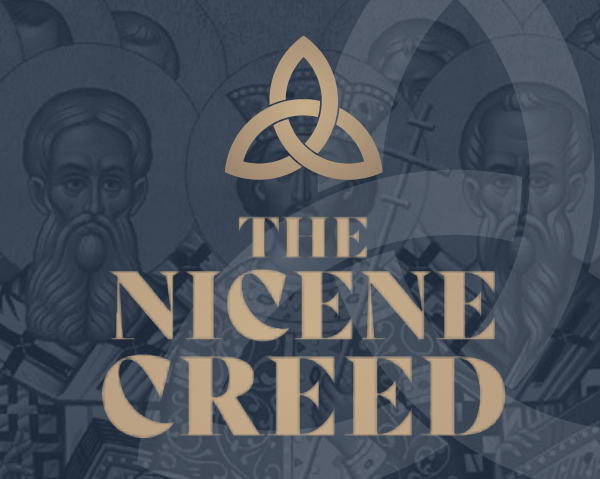
The Nicene Creed has been lauded as one of the most important statements of Christian belief in the history of the Church. Recited by believers since the Second Ecumenical Council of 381, it is cherished for its precision and beauty. This term we explore the doctrines of scripture summarised in the creed to further our understanding of ‘the faith once for all delivered to the saints,’ to become more confident in articulating what we believe, and to grow in our devotion to the one God who is the Father of the Son in the joy of the Holy Spirit, the God who acts for us and for our salvation, the God who is good news.
Sunday 14th September
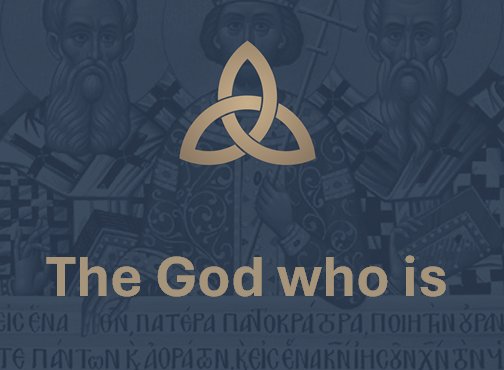
We begin by considering the background to the creed, the realities of the nature of God it articulates – that He is three persons sharing one nature – and why a Trinitarian God is so significant for time and eternity, for our everyday lives and our future inheritance.
Sunday 21st September

Having asserted the unity of God, the Nicene Creed turns to the glory of the eternal Trinity, God is revealed as three persons sharing one nature. The Father is the Father because he has a Son, whom he is delighted to love in the joy of the Holy Spirit. This is good news, God is not simply ‘Almighty,’ all power and no personality, the eternal Trinity is a relational unity delighting in one another, love flowing out from one to another. Creation is entirely characteristic of this God; the Father extends his love to creatures made in his image, that we might share in the enjoyment of Him. Such a God, a fountain of goodness, is moved to redeem, to give, that by adoption through faith in Christ, we might be made brothers and sisters of the Son. Jesus teaches his followers to relate to his Father as their Father, to ask, seek and knock because it is the Father’s joy to give in outrageous generosity.
Sunday 28th September

B.B. Warfield described the unfolding revelation of God as like a dimly lit chamber; the New Testament turns the lights on, not to reveal something new, but to make plain what was seen in shadow. With the incarnation, the God known truly in the Old Testament is revealed in the Son, as the Apostle John writes: ‘the one and only Son, who is himself God and is in closest relationship with the Father, has made him known’ (Jn. 1:18). So the Creed affirms the Son is begotten of the Father, God from God, Light from Light. And yet, ‘for us and our salvation’ the Son is sent, uniting a human nature to the divine in the person of Jesus, fully God and fully man, able to mediate, of sufficient worth to satisfy the infinite debt of sin and one of us to be our representative and substitute. This is the wonder of all wonders, the Word became flesh and made his dwelling among us, that we might forever dwell with him.
Sunday 12th October
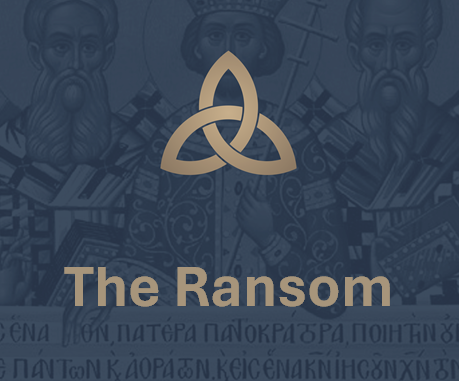
We return to our series on the Nicene Creed this week, reflecting on the death of Jesus, ‘who for our sake was crucified under Pontius Pilate…’ This is the very centre point of all history. As Rev. John Stott wrote in his majestic book ‘The Cross of Christ’: ‘It would be hard to exaggerate the magnitude of the changes that have taken place as a result of the cross… especially God’s dealings with us and in our relations with him. Truly, when Christ died and was raised from death, a new day dawned, a new age began.’ In the person of Jesus, God reconciled his people to himself, by giving himself; ‘moved by the perfection of his holy love, God in Christ substituted himself for us sinners. That is the heart of the cross.’ Here we see the depths of God’s love, justice, wisdom and mercy. Here is his glory displayed. Here, our hope is secured. Here is the pattern for the Church to follow.
Sunday 19th October
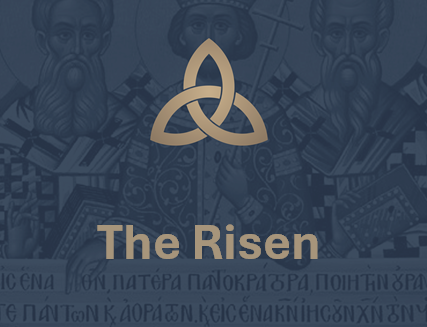
After contemplating ‘his finest hour,’ the hour the manifold glory of God was displayed in the cross, we turn this week to consider the great confirmation of the efficacy of Christ’s work, his resurrection. We believe: ‘on the third day he rose again in accordance with the Scriptures.’ A risen Jesus writes hope over the world as a tangible demonstration of what the cross accomplished. It reveals Jesus really has atoned for sin, thereby exhausting death’s right to hold him and those for whom he paid. As we receive Christ, and all he has secured, by faith, we come in on this risen life; it flows to us, transforming our fear into expectant hope, our end into a glorious new beginning. Anticipated in the scriptures, occurring in history, affirmed by eye-witnesses and launching the unstoppable rise of the Church, the resurrection is no wishful thinking; and it changes everything!
Sunday 26th October
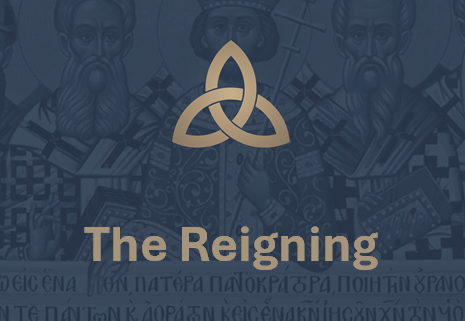
Continuing our journey through the Nicene Creed, we come this week to consider the Ascension, reign and return of king Jesus. According to the Father’s purpose and promise, Jesus went up into heaven to be received by him as the worthy Son, and crowned ‘far above all rule and authority and power… not only in the present age but also in the one to come.’ (Eph. 1:21). Here is our comfort – the king of heaven, our great High Priest, ever lives to secure us with himself. In the present age He is sovereign over every threat, fear and foe, the champion who for us, because we are his own. He is building his church and directing all things to the appointed time when he shall return to bring in ‘the age to come,’ the age of his enduring kingdom, the reign he will share with his people. The church exists between the ages, now is the time we proclaim our king.
Sunday 2nd November
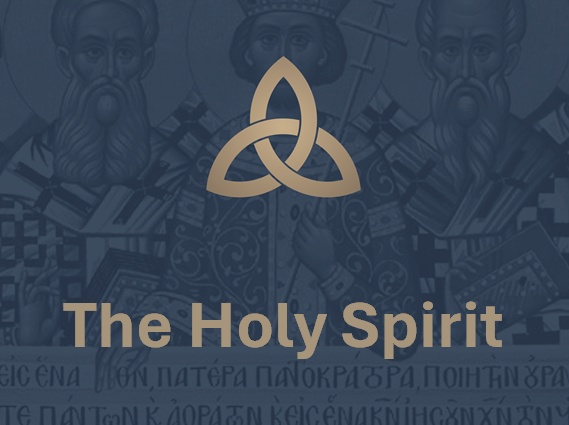
Understandably, given the context of the day, much of the Nicene Creed is devoted to the person and work of the eternal Son, sent to redeem, rise and reign. The question arises, how do we come receive him and come in on the life he secures? The answer is the person of the Holy Spirit, himself fully God, co-eternal and co-equal with the Father and the Son. He was sent to lead the apostles into truth, and by that word to regenerate hearts to respond to the gospel through the gift of faith that unites us to Christ and his life. The same Spirit continues his work in renewal, transforming minds and shaping lives after Christ: fostering fruitful obedience, equipping for service, enabling perseverance, prompting prayer, promoting unity, empowering mission. Praise God for the gift who keeps on giving.
